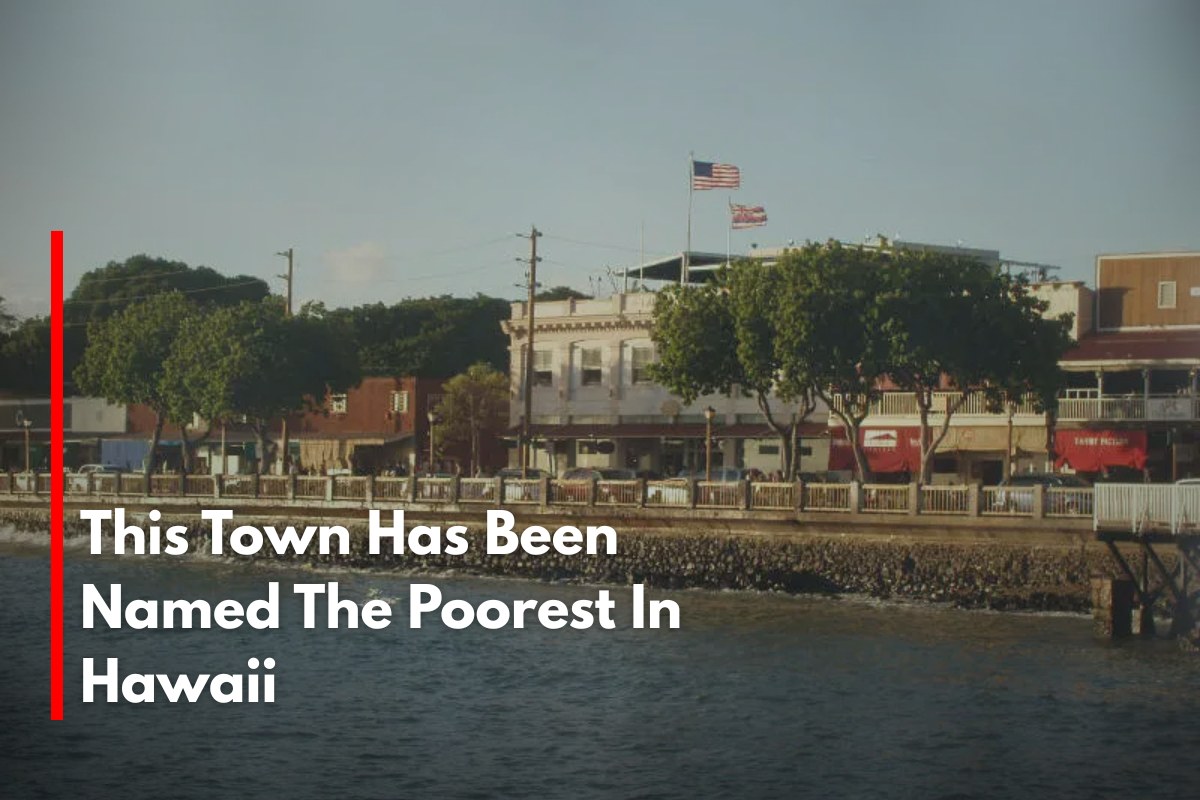Hawaii is famously known for its stunning beaches, lush landscapes, and relaxed island lifestyle. However, not all communities in the state share in the economic prosperity often associated with “paradise.” One town in particular has garnered attention for being the poorest in Hawaii, facing unique challenges that impact its residents daily.
Nanakuli: The Poorest Town in Hawaii
Nanakuli, located on the western coast of the island of Oahu, has been identified as the poorest town in Hawaii. Despite its natural beauty and scenic ocean views, the town struggles with economic difficulties that are reflected in income levels, employment, and housing.
The primary reason Nanakuli holds this designation is the lack of well-paying job opportunities. Most of the employment available is in low-wage industries, especially within the service and hospitality sectors. These jobs often do not provide enough income to cover Hawaii’s notoriously high cost of living, which places enormous strain on many families.
Economic Challenges
The cost of living in Hawaii is among the highest in the United States. Housing prices are particularly inflated, leaving many in Nanakuli living in overcrowded or unstable housing situations. Rent and utility bills consume a large portion of residents’ incomes, exacerbating financial stress.
Poverty rates in Nanakuli significantly exceed the state average. Many residents face difficulties meeting basic needs, which contributes to ongoing cycles of poverty. Economic hardship directly affects community health, education, and quality of life.
Education and Infrastructure
Nanakuli’s struggles extend beyond finances. Local schools face underfunding, which can limit educational resources and support for students. This gap in education opportunities makes it harder for young people to break out of poverty and secure higher-paying jobs.
Infrastructure challenges also affect the town. Limited public transportation options mean many residents rely on cars, which adds to expenses. Roads and public services are often in need of improvement, posing additional obstacles for daily life.
Community Spirit and Resilience
Despite these challenges, Nanakuli is known for its strong sense of community and resilience. Local organizations and nonprofits work tirelessly to support residents, offering food programs, job training, and other resources to help improve lives.
The town’s residents embody the Hawaiian spirit of aloha, which means love, compassion, and mutual respect. This community strength helps Nanakuli face its difficulties with determination and hope for a better future.
Looking Ahead
Nanakuli’s economic challenges highlight the harsh reality that not all parts of Hawaii share equally in its prosperity. Addressing issues like affordable housing, employment opportunities, and education funding is crucial to improving conditions for the town’s residents.
As Hawaii continues to develop policies and programs aimed at reducing poverty and assisting struggling communities, towns like Nanakuli will be critical areas of focus. Efforts to build economic stability and uplift families could transform the town’s future prospects.
While Nanakuli may currently hold the title of Hawaii’s poorest town, it stands as a testament to the resilience and spirit of its people. The natural beauty surrounding the area contrasts with the economic hardship, reminding us that even in paradise, challenges exist.
With ongoing community support and focused policy efforts, there is hope that Nanakuli’s story will change—transforming from economic struggle to renewed opportunity, prosperity, and well-being for all its residents.
Sources
[1] https://collincountymagazine.com/2025/06/26/this-town-has-been-named-the-poorest-in-hawaii/
[2] https://howzitkohala.com/2023/01/08/this-is-the-poorest-town-in-hawaii/
[3] https://www.civilbeat.org/2011/11/13539-fact-check-white-house-waianae-among-hawaiis-poorest-areas/
[4] https://247wallst.com/income/2025/01/17/the-poorest-town-in-every-state-in-america/
[5] https://www.civilbeat.org/2018/12/census-the-gap-between-rich-and-poor-in-hawaii-is-growing/











